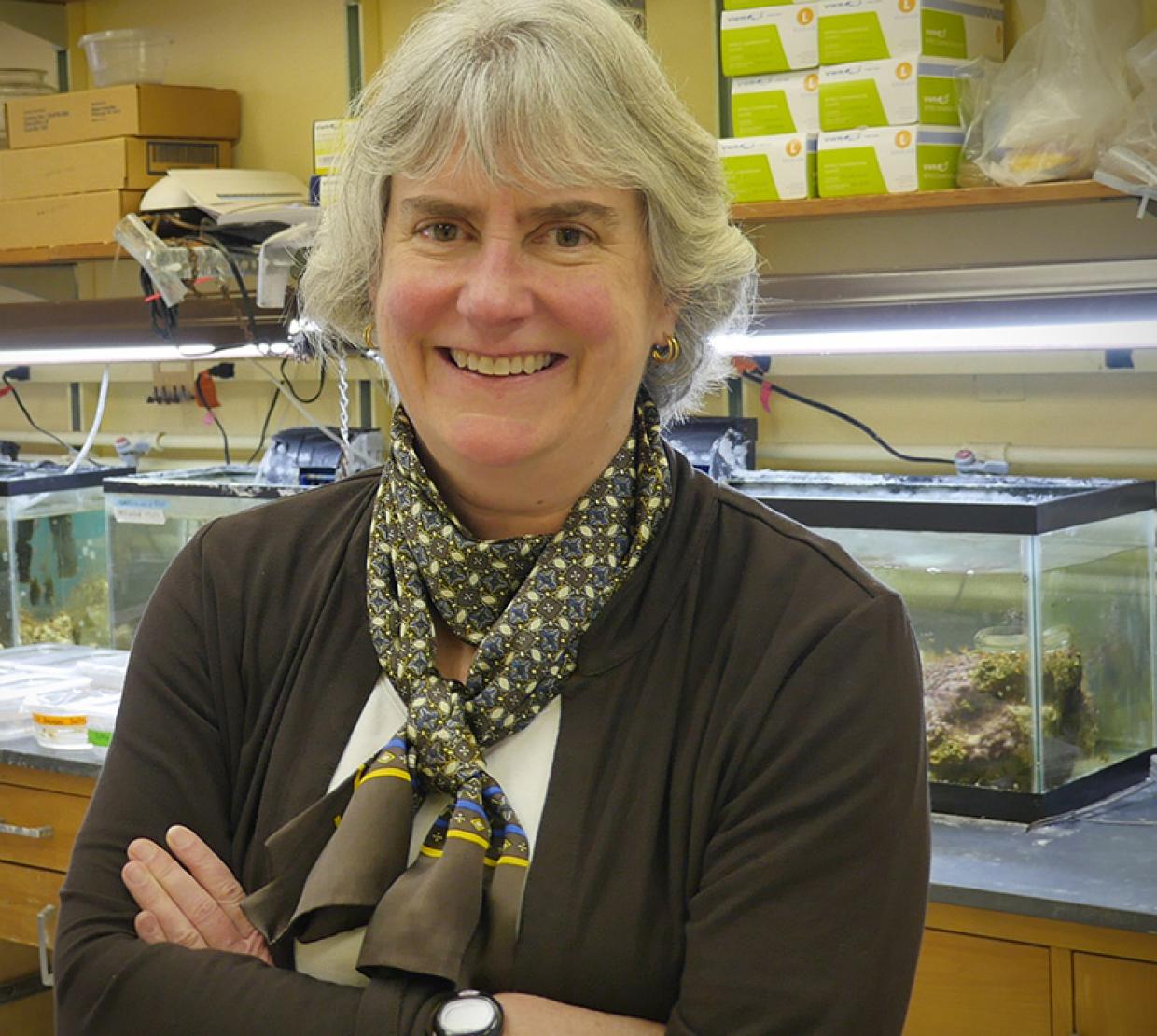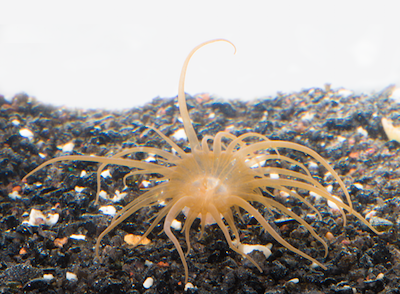Congratulations to Virginia Weis, University Distinguished Professor of Integrative Biology, for receiving the Eminence in Research Award from the International Coral Reef Society. The most prestigious award in this discipline, it is given annually to a scientist with more than 25 years of post-Ph.D. research in the field.
For more than two decades, Weis has focused on the symbiotic association between corals and the algae they harbor within their cells, known as zooxanthellae that live inside the corals and provide them with energy as well as their vibrant color.
Corals are particularly sensitive to changes in temperature. Climate change-induced spikes in global ocean temperatures cause corals to lose their zooxanthellae, which leads to starvation and often death. At extreme temperatures, distressed corals may die immediately, leaving a white skeleton barren of the nutrients the reef ecosystems depend on, a phenomenon known as coral bleaching.
In her laboratory, Weis and her graduate students closely examine the molecular partnership between corals and algae, their communication and signaling patterns that regulate the symbiosis, and how a breakdown in that partnership results under conditions of stress induced by heat and environmental pollution.
Yet corals are slow-growing in the lab and difficult to obtain because of their endangered status in many locations. To solve this challenge, Weis helped pioneer a new approach to study corals effectively and on a larger scale by using the sea anemone Aiptasia (Exaiptasia diaphna) as a model. Aiptasia engages in a symbiosis with algae just like corals but can survive better than corals in a lab.
One distinguished nominee said that without Weis’ work, the field of coral research “would probably be 10 years back in our understanding of bleaching and the coral-Symbiodiniaceae symbiosis.”




